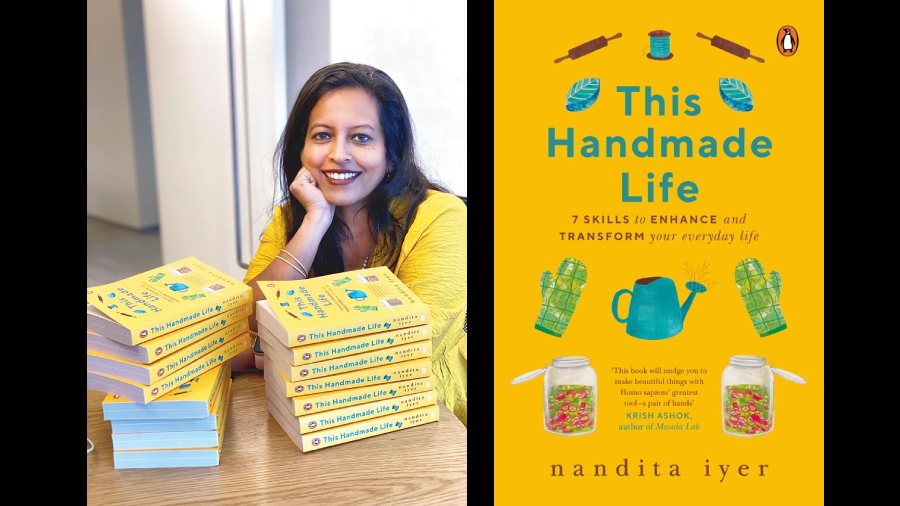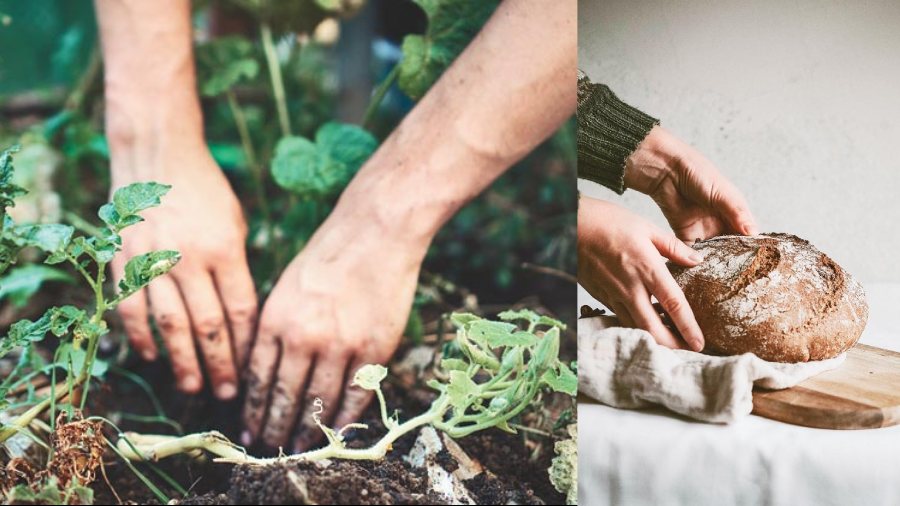The hand is the ‘‘tool of tools’’ — Aristotle
From a vascular surgeon repairing a blood vessel, to a musician playing the sitar or a mechanic digging a borewell, our hands perform a staggeringly wide range of actions. They are also used as our first checkpoint for temperature or texture.
Human hands are made up of 27 bones and 30 muscles. They have two kinds of grips, the power grip and the precision grip. There are 17,000 touch receptors and free nerve endings in the palm to pick up the sensations of pressure, movement and vibration. Ever since the advent of smartphones, almost all of us have reduced the fascinating range of things our hands can do to just going tap, scroll and swipe on our phone screens.
Hands come with a brain of their own. Or rather, the connection with the brain is so swift and so precise, that when you pick up salt to season a dish, your hands know exactly how much salt is required for the dish, even without putting in active thought into the process.
The pandemic saw the world going back to doing things with its hands such as baking sourdough bread, home-baked goodies, gardening and crocheting. While we initially got into these things to deal with shut stores and supply-chain issues, it also made us realise that all these creative activities can be enjoyable and useful, and even healing.
Making things with our own hands is a way of feeling in control on at least some aspects of our life during high-stress times such as the pandemic. Being self-reliant for some of our basic needs is a very feel-good experience. Not being dependent on a store for something like our daily bread or soap can be freeing and a source of joy. The satisfaction felt at the end of a project also releases feel-good hormones inducing a feeling of well-being. These are all exercises in self-care.These were some of the reasons why so many of us took solace in DIY and made things with our own hands during the pandemic. These activities provide a small oasis of calm amidst the stressors of our daily lives like exams, deadlines, work pressure etc.
Keeping our hands busy with gardening or making bread keeps us away from our phones. If you have ever dealt with sticky dough, you know that it is not possible to operate the touchscreen with dough fingers. Getting my hands dirty with dough, soil, oils or needle and thread has helped keep my Covid anxiety under control.
All of these projects have been shared in my book, This Handmade Life, across the seven chapters — baking, spices, fermentation, kitchen gardening, soap making, homemade beauty products and fibre arts improve mood and mental well-being. Creating something from scratch activates and engages all the senses and reduces the levels of stress hormones.
Hobbies are a natural way to reduce levels of cortisol (sustained levels of high cortisol in the body is damaging to health in multiple ways). A study on substance abuse treatments found that gardening led to reduction in cortisol levels and improved quality of life compared to conventional therapies.
Engaging meaningfully in creative activities generate a positive kind of stress called eustress. This variety of stress injects a bit of thrill and enthusiasm in our mundane daily life. Eustress can also counteract the negative kind of everyday stress that builds from workplace, relationships etc.
Research is increasingly in favour of the fact that involving yourself in creative hobbies when away from work improves performance levels at work. Creative projects are the best way to disconnect from work and gain some perspective. It’s how writers facing writers’ block are often advised to step away from their work and do something else, and they can come back to write better. It helps broaden your identity and 100 per cent of you is not the work you do. Creative hobbies also help avoid burnout.
Let the pressure of perfection not intimidate you into not getting started at all. There is nothing negative about being a dabbler. To engage in arts and crafts, even superficially, is better than not to engage at all. The key is to just get started.

A study on substance abuse treatments found that gardening led to reduction in cortisol levels and improved quality of life compared to conventional therapies
The writer is the author of This Handmade Life










